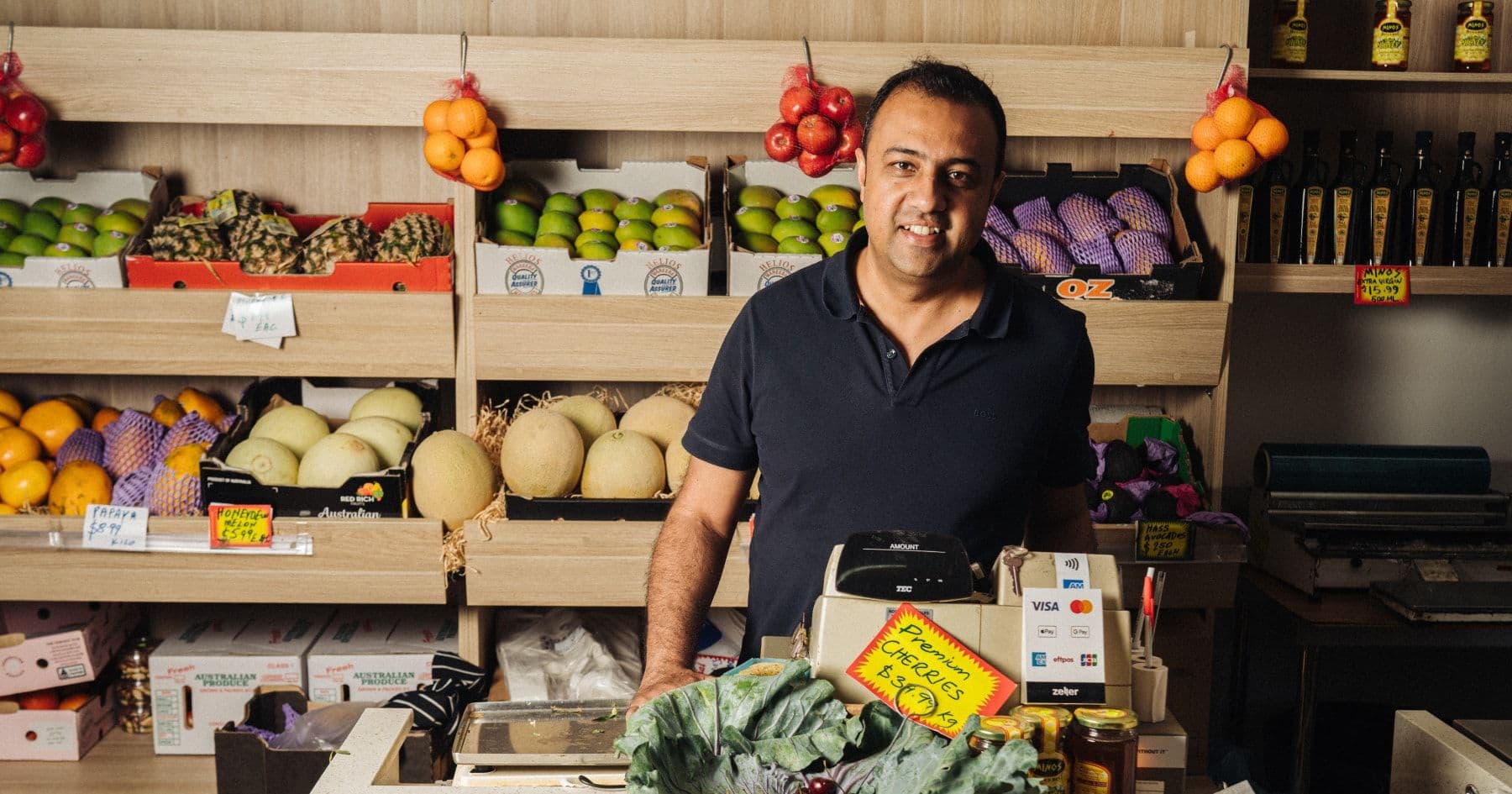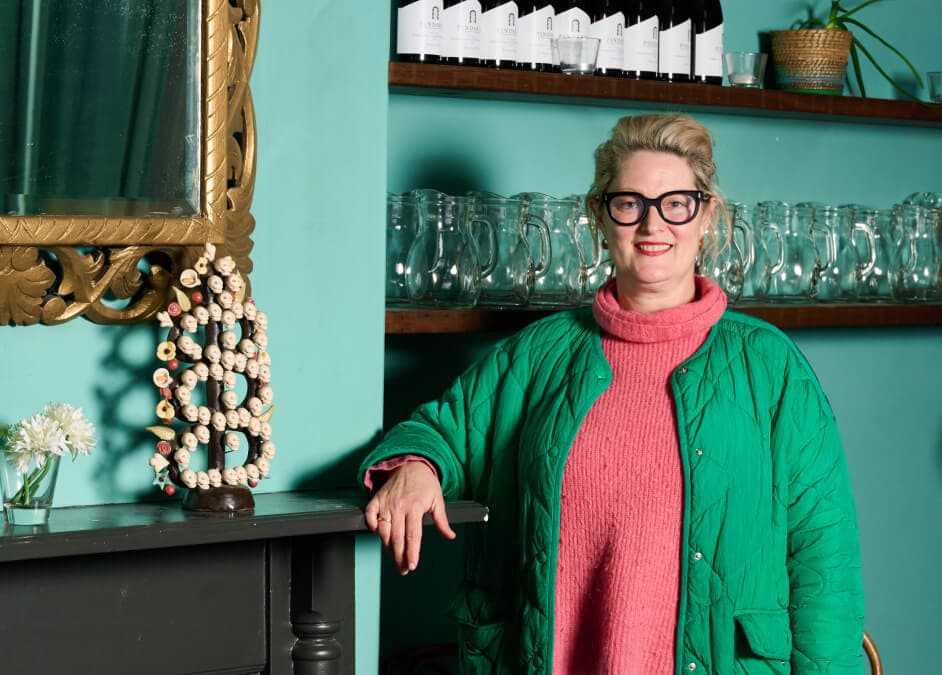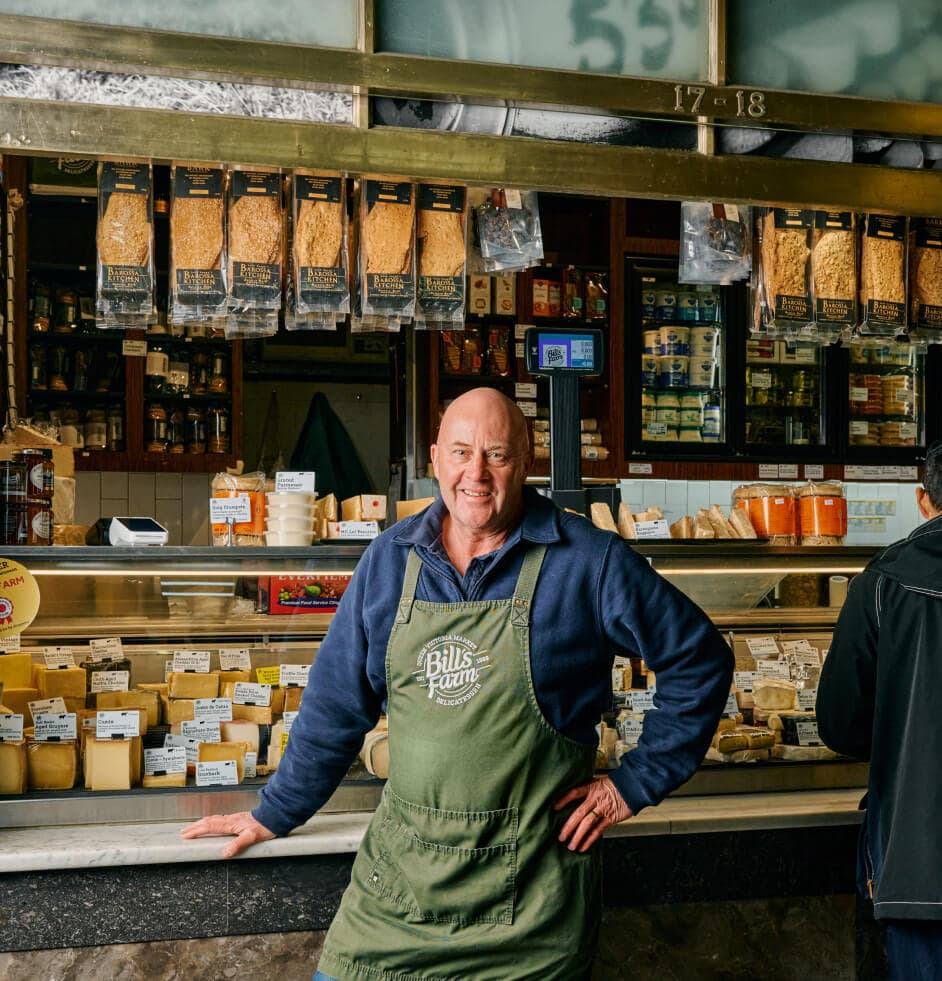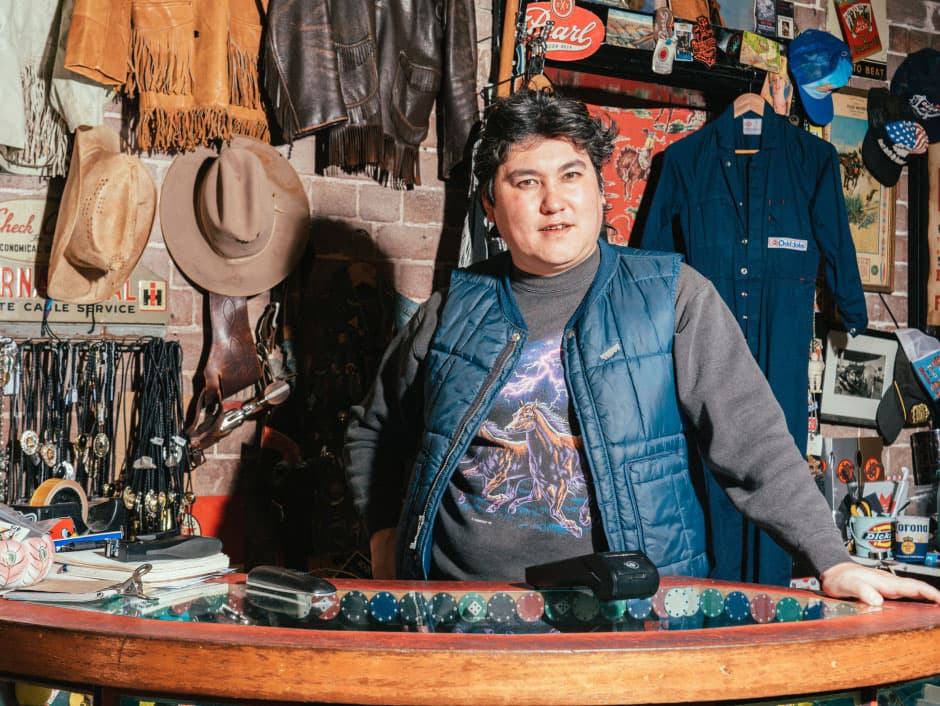
- Case Studies
From Analytics to Apples: Meet the Businessman Bearing Fruit at a Mosman Institution
When Som Banerjee first visited the Sydney Produce Market, he was dressed in his regular business attire. At four o’clock in the morning, he was shadowing the buyer of his new venture – Johnnies Fruit Shop. By 9am, he was clocking on for his day job as Head of Operations at a global data, analytics, and technology company. While his profile might not fit the traditional bill of a greengrocer, Som’s strategic approach may be exactly what’s needed to revive this small business to its former glory.
“You’re going to have to change your boots!” exclaimed the flower vendor to Som, at the sight of his dress shoes amongst all the vegetable scraps and market debris. It was September, 2023, and Som Banerjee was learning the ropes from the produce buyer for Johnnie’s Fruit Shop – the business he had just acquired. Located on Avenue Road in Mosman, the shop has been a local institution since 1962, when Cristina (still the current landlady) and her husband laid the foundations for what would become a trusted and dependable place for locals to source fresh fruit and veg.

Jimmy’s legacy.
When Jimmy and Toula Koustoubardis took over the shop in 1984, they filled it with oregano, olive oil, and a palpable Mediterranean warmth from their native Greece. Johnnie’s quickly became synonymous with Jimmy’s and the shop enjoyed continued success for thirty five years, thanks in equal part to the family’s good nature, the quality of their produce, and the iconic 60s décor for which people would cross the city to visit. However, when Jimmy and Toula finally retired in 2019, the two consecutive owners failed to keep the couple’s spirited legacy alive, removing much of the shop’s historic charm and losing many loyal customers in the process.
Then arrived Som. Having spent twenty two years in the corporate world, working in financial services in California and New York, private equity and hedge funds in the UK and Turkey, and technology and data and analytics since being in Australia, Som’s most recent career move is indeed a surprise. “I had been looking for something that would give me a sense of fulfilment, carrying on a legacy and serving the community,” he explains. Even before Som had put pen to paper on the purchase of Johnnies Fruit Shop, he was already in communication with locals. “Everybody talked about how disappointed and how saddened they were when Jimmy left the business,” Som says. With such big boots to fill, it’s lucky he is more of an Oxfords guy.

A people-first approach.
The first thing Som did when he took over the shop was implement the feedback he’d received from the locals: “The new owners had renovated it so that it now looked more like a supermarket. They said, "If we need to go to a supermarket, why would we come here?” Unable to revert the interior back to its much-loved 60s style, he instead hired a local mural artist to come in and decorate all three walls. He added shelves, and brought back some of the pantry essentials that had been discontinued. Then he printed out business cards asking customers what they would like to see at the shop. “I said please give me your honest feedback, here's my number, send me a text or an e-mail… And quite a few customers got back to me. That was very heartening” he says.
Som’s people-first approach doesn’t stop at his customers. He’s retained all the staff and has even brought back an eighth-grader – whose contract was terminated by the previous owners – as his social media manager. Even though optimising the business’s efficiency is high on his agenda, he wasn’t willing to draw the line at the long-serving staff, Roy and Louie, both in their late 70s, who have been working in the shop for the last 20 and 40 years, respectively. “This industry and this community attracts an older demographic, and getting them to change is quite challenging. So, I just have to adapt to their ways of working.” he explains.



The freshest tech.
Knowing he needed to cater to an older demographic was one of the reasons he was initially attracted to Zeller. He was looking for a payment terminal that would be easy to use, and where the numbers on-screen were clearly visible. “Also, as the owner, I wanted to be able to access the data and analytics coming out of the terminal,” he adds. Coming from an operations and technology background he was quick to see the advantage of managing all his finances through Zeller: “I was very impressed,” he says of his initial conversations with the team, “Then when I saw the dashboard, and how easy it was to open an account, and the ability to pull reports and see day-on-day transactions, I knew that Zeller was the right fit.”

Service you can bank on.
It wasn’t a snap decision though. Som conducted a comprehensive comparison of financial services providers, boiling it down to three finalists: Westpac, Suncorp and Zeller. What sealed the deal was Zeller’s flexibility and accessibility: “The banks are large, bureaucratic organisations. They’re not catered to serve small businesses. I tried to open an account with one of them, but it meant going into a branch. I'm working 9-5, they're open from 9-5. When do I go?” he explains. Now, Som manages all his finances through Zeller: money that comes through the EFTPOS Terminal is settled into his Zeller Transaction Account each night, ready to be spent on his Zeller Debit Card the next day. “The funds are always there. There's never been a delay and it is so easy to transfer. I don't really see a need for settling into a different bank account when everything can be consolidated in one piece and that helps with my reporting as well” he says.
Apples and oranges.
Som logs into Zeller two to three times a day to see how the sales are going and to analyse any trends. “When I go onto the dashboard I can see how sales are tracking compared to the same day of the previous week, if it’s different, I can question why… Already I’ve noticed that weather is a big factor. This demographic is a bit older, and if it’s raining outside they don’t step out. So I'm trying to counterbalance that by seeing if I can deliver.”
It’s clear that what Som and his predecessor, Jimmy, don’t share in history, they make up for in their desire to serve a community. “I really do want to serve the needs of the customers who have been coming to this shop for such a long time,” says Som. He doesn’t have 35 years of local knowledge, but he does have an eye for technology that can help him quickly understand the likes and dislikes of this tight-knit community. You can’t compare apples with oranges, but you can be sure you’ll still find the best at Johnnies Fruit Shop.
To read about other Australians growing their businesses with Zeller, head to the Zeller Business Blog and sign up to our newsletter to receive stories straight to your inbox.



